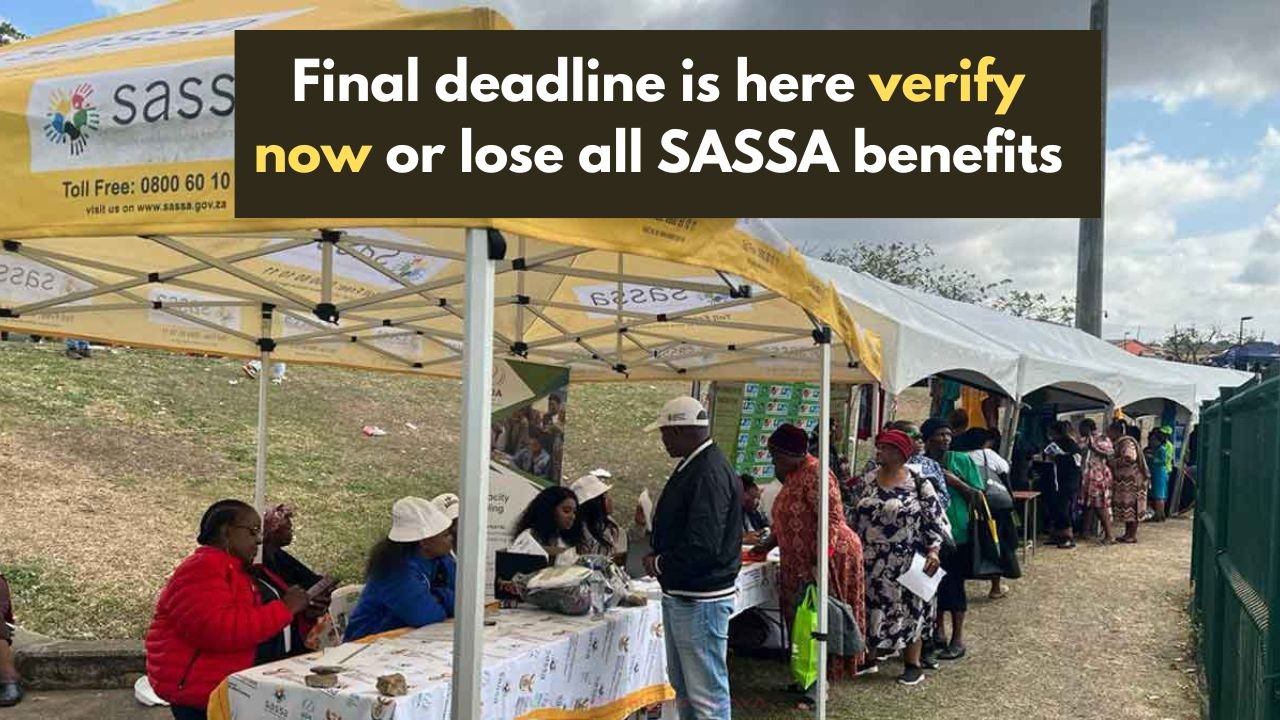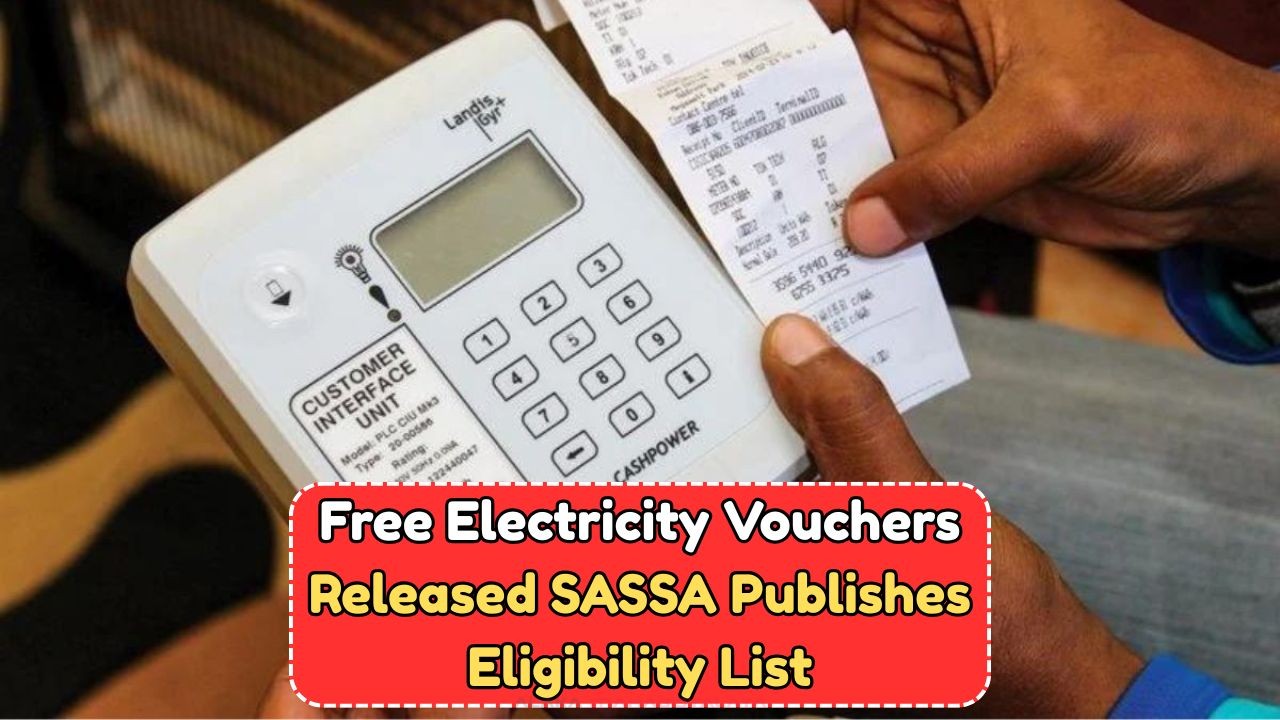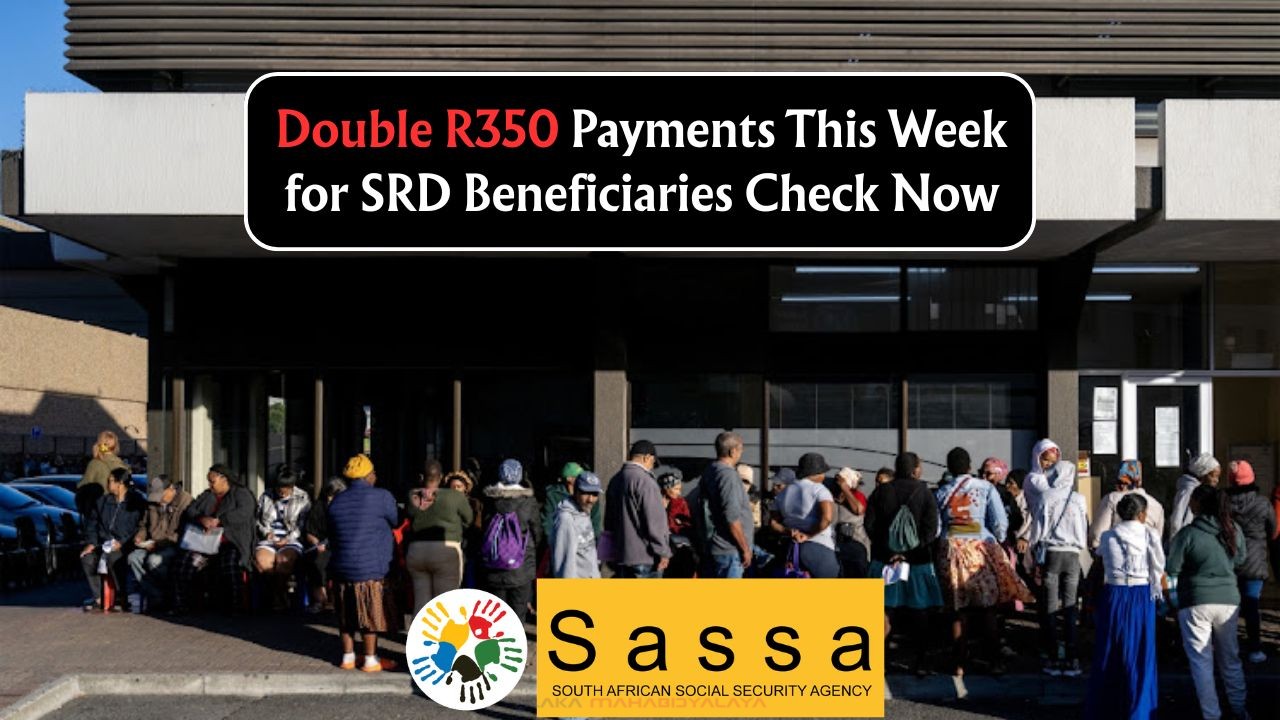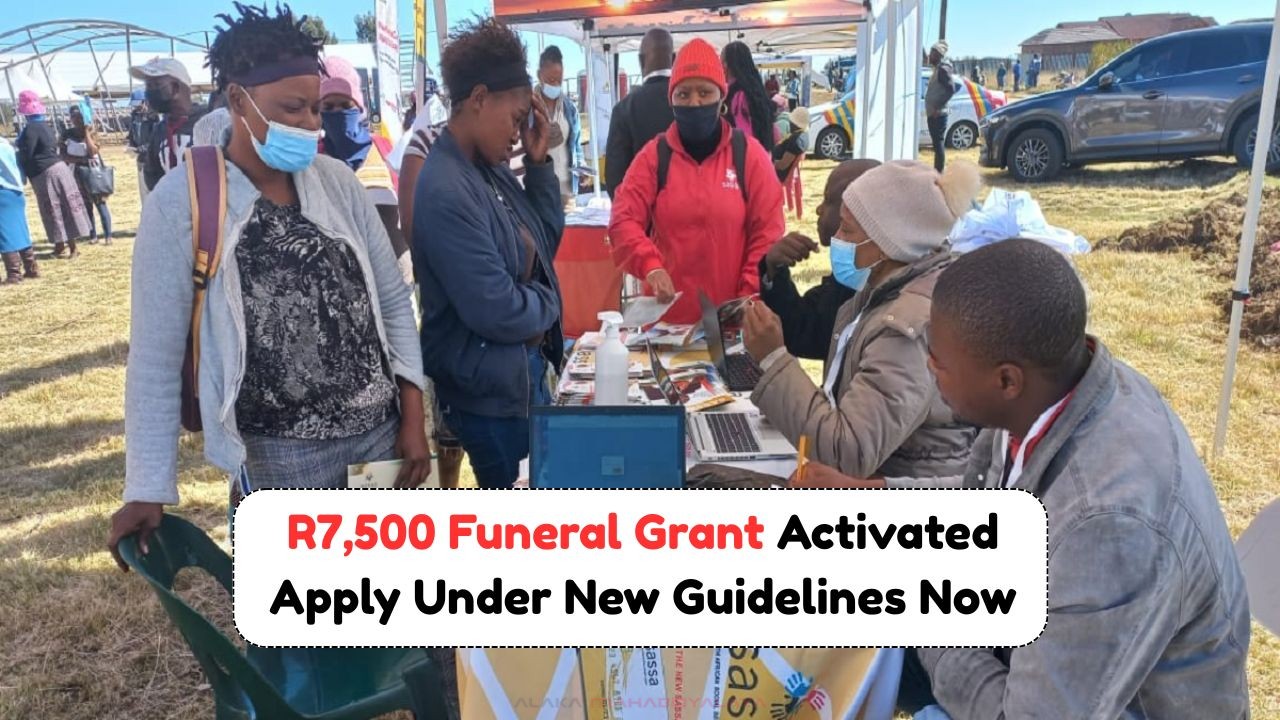Verification for Government Services – In a major development affecting millions of South African citizens, the Department of Home Affairs has officially confirmed the final deadline for biometric and identity document verification. Beneficiaries who fail to complete their verification process before 18 July 2025 risk being blocked from accessing all government services, including the crucial SASSA social grants such as the SRD R370, Child Grant, Old Age Pension, Disability Grant, and others. This urgent notice has triggered a wave of concern across the country, especially among low-income individuals, the elderly, and vulnerable communities that rely on SASSA as their primary source of income. The verification process is part of the government’s efforts to curb fraud, duplication, and misuse of public funds, but it has also led to confusion and panic among recipients who are unsure how to complete the required steps in time. The Department has urged all citizens, particularly those who receive monthly SASSA payments, to take immediate action to verify their ID details either through Home Affairs offices or via approved online platforms. Failure to do so will result in complete suspension of benefits, loss of access to health services, housing support, and even education-related aid. This article provides a step-by-step guide on how to verify your identity, the documents you’ll need, the consequences of missing the deadline, and where to go if you need help.
Who Needs Verification for Government Services and Why This Matters
The verification mandate affects millions who depend on government benefits. It includes both new and existing grant recipients.
- All SASSA grant recipients (SRD, Child, Old Age, Disability)
- RDP housing applicants and recipients
- Beneficiaries of NSFAS or government bursaries
- Individuals accessing free health care or education support
- ID holders flagged for duplication or fraud
- Foreign nationals with permanent residency or asylum status
- People with pending ID applications
- Citizens using old green barcoded ID books
Why Is the Government Doing This?
The Department of Home Affairs has reported a sharp increase in identity fraud and grant misuse over the past year.
- Over 83,000 duplicate ID cases flagged since January 2024
- Nearly R285 million lost due to fraudulent SASSA accounts
- Fake asylum claims used to access free medical services
- Double grant payouts under the same ID number
- Multiple ID documents linked to deceased individuals
- Criminal syndicates exploiting loopholes in social relief systems
Verification for Government Services: What Happens After 18 July 2025?
The consequences of missing this cut-off are severe and could impact all government-related assistance.
| Service Type | Status After 18 July (No Verification) | Verified Status Benefits |
|---|---|---|
| SASSA SRD R370 | Suspended immediately | Paid monthly as scheduled |
| Child Support Grant | Frozen until verification is done | Full benefits with back pay |
| Old Age and Disability | Temporarily blocked | Restored upon biometric match |
| RDP Housing Applications | Marked as ‘pending fraud check’ | Proceed to allocation |
| Health & Hospital Services | No free access for unverified citizens | Fully active with valid ID |
| NSFAS & Bursaries | Funding paused | Resumes once ID cleared |
| Banking/Payment Access | Account may be locked | Transactions processed normally |
| Travel and ID Renewal | Restricted until verification | Normal application processing |
What If You Verify Late?
Even if you miss the deadline, there may still be a grace window, but it comes with serious delays.
- Payments will be held until verification is complete
- Re-verification may take 7–21 working days
- You must reapply for some services like SRD Grant
- You will need to submit proof of delay (hospital slip, police report)
How to Verify Your Identity in Time
The government has provided several verification options to make the process easier for citizens.
- Visit your nearest Home Affairs office with original ID or passport
- Use Home Affairs e-services for biometric check (if enabled)
- Go to selected Post Office branches offering verification desks
- Use Bank verification points (Capitec, Nedbank, TymeBank)
- Submit fingerprint at SASSA offices (only in selected provinces)
- Contact your ward councillor for mobile outreach units in rural areas
Required Documents for Verification
Make sure to carry the correct documents with you during the verification visit.
| Document Type | Mandatory | Notes |
|---|---|---|
| Green ID Book/Smart ID | Yes | Either is acceptable |
| SASSA Card | Yes | Required for grant-linked verification |
| Proof of Address | Yes | Utility bill, bank statement, or police affidavit |
| Birth Certificate (for Child Grant) | Yes | Required if verifying as a parent or guardian |
| Police Report (if ID stolen) | Optional | Helps explain delay or fraud |
| Medical Note (for disability) | Optional | To access disability grants or services |
| Cellphone with OTP access | Yes | For digital ID confirmation |
Where Are the Verification Points Available?
The Department has expanded its verification centers to improve accessibility, especially in rural and under-served communities.
Major Cities Offering Full Verification Facilities
| City | Verification Centers | Weekday Hours | Weekend Hours |
|---|---|---|---|
| Johannesburg | 17 Home Affairs + 9 Post Offices | 08:00 – 16:00 | 09:00 – 13:00 |
| Cape Town | 12 Home Affairs + 6 Post Offices | 08:00 – 16:00 | 09:00 – 12:30 |
| Durban | 11 Home Affairs + 4 Banks | 08:30 – 16:30 | 09:00 – 13:00 |
| Pretoria | 14 Home Affairs + 7 Post Offices | 08:00 – 16:00 | Closed |
| East London | 9 Home Affairs + 5 Post Offices | 08:00 – 15:30 | 09:00 – 12:00 |
| Polokwane | 7 Home Affairs + 3 Banks | 08:30 – 16:00 | 08:30 – 12:00 |
| Kimberley | 5 Home Affairs + 2 Post Offices | 08:00 – 15:30 | Closed |
Rural Outreach and Mobile Units
For citizens in remote or rural areas, mobile ID units are operating temporarily until the deadline.
- Operates between 12–17 July in 23 districts
- Contact your ward office or municipality
- Check SMS updates from SASSA or Home Affairs
- Bring your documents and be ready for biometric scan
What Happens If You’re Already Blocked?
If your account has already been blocked before the 18 July deadline due to non-verification, here’s what you can do.
Immediate Steps to Reactivate Your Account
- Visit Home Affairs and complete identity verification
- Take your SASSA card and green barcoded ID or Smart ID
- Call SASSA helpline 0800 60 10 11 for grant status
- Use GovChat or SRD portal to reapply after clearance
- Ensure your bank account is active and matches ID
- Check Post Office for any uncollected grant funds
Extra Notes for Reinstatement:
- Reinstatement can take up to 21 days
- Grants missed during blockage will not be back-paid automatically
- You may be asked to submit a sworn affidavit if fraud was suspected
- Disability or child grant recipients may require re-assessment
Digital Re-verification Options
The government is testing a limited rollout of digital verification via mobile.
- Only available for SRD and Old Age grants currently
- Requires biometric-enabled phone or app
- Must be linked to your cellphone number on file
- OTP and facial scan used for instant match
Missing this deadline could severely disrupt your access to essential support, so do not delay. Take action now and ensure your ID is verified through the right channels before 18 July 2025. The government has warned there will be no extensions, and grant beneficiaries are especially urged to complete the process immediately to avoid being cut off from financial assistance.
FAQs of Verification for Government Services
1. What is the final date to verify my ID?
18 July 2025 is the last date to complete verification.
2. Can I use my passport for verification?
Yes, if it’s linked to your SASSA or Home Affairs records.
3. Will SASSA backpay my grant after I verify late?
Not guaranteed — only future payments are assured.
4. Can I verify my ID at the bank?
Yes, selected banks like Capitec and Nedbank offer this.
5. Is fingerprint verification mandatory?
Yes, for all biometric-based verification processes.






